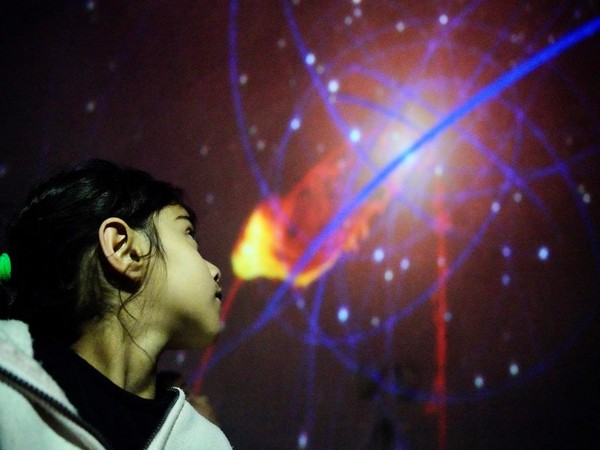Israeli-led researchers discover Milky Way's heaviest black hole
Situated approximately 1,500 light-years away from Earth, the black hole was revealed through data collected by the European Space Agency's Gaia spacecraft.

- Country:
- Israel
Tel Aviv [Israel], April 22 (ANI/TPS): An international team of astronomers, led by Tel Aviv University Professor Tsevi Mazeh discovered a black hole more than three times heavier than the other known black holes in the Milky Way galaxy. Situated approximately 1,500 light-years away from Earth, the black hole was revealed through data collected by the European Space Agency's Gaia spacecraft. The researchers also found a star orbiting the black hole, also known as a "binary system." The findings are due to be published in the peer-reviewed Astronomy & Astrophysics journal.
"This is an exciting discovery of the heaviest black hole in a binary system known today in the galaxy," said Mazeh. "It is amazing how humankind manages to navigate the vast expanses of the universe and discover such mysterious objects. I am convinced that the discovery will lead to a new mode of thinking regarding the presence and prevalence of the black holes that cruise through the expanses of our galaxy." According to the accepted theory, when the fuel for the nuclear combustion process that takes place in the core of a star runs out, it collapses in on itself, towards its center. If the star is massive enough, all the remaining matter collapses into a single point of infinite density. It is possible, therefore, to see the black hole as the "corpse" of a star that has ended its life cycle and collapsed in on itself, the researchers explained.
Black holes are difficult to discover because even light cannot overcome their powerful gravitational forces. When a black hole is in a binary system with a normal star, the motion of the visible star is used to measure the mass of its invisible partner. Astrophysicists are still trying to understand the extreme conditions that lead to the collapse of matter into the central point, so every discovery of a black hole is accompanied by enormous excitement among researchers.
Mazeh, along with Prof. Laurent Eyer from the University of Geneva, spearheaded the effort to identify black holes using Gaia's data. Their collaboration brought together researchers from various countries, including Spain, France, Germany, Belgium, Poland, and Switzerland. The team dubbed the new binary system Gaia BH3. (ANI/TPS)
(This story has not been edited by Devdiscourse staff and is auto-generated from a syndicated feed.)










